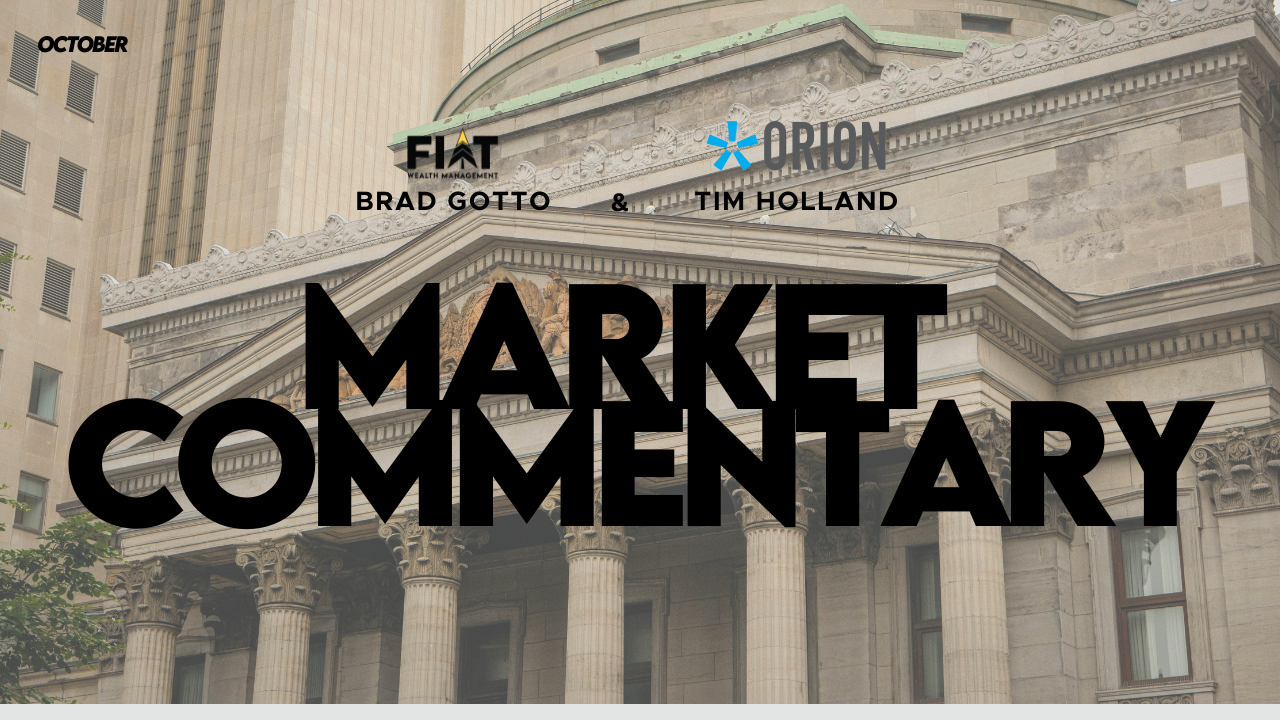The stock market continues to be down and, per usual in this type of market, people are panicked and fleeing. Everyone wants to know how much lower the market could go. Regardless of how confident your pundit of choice sounds, there is no answer to that question. What we do know is that every few years the market gives us a sale and it could be in your best interest to go shopping.
“Every decade or so, dark clouds will fill the economic skies, and they will briefly rain gold.”
— Warren Buffett
What is a Market Crash?
First of all, it's important to understand that a market crash is simply a large drop in the stock market over a short period of time. It doesn't mean that the economy is collapsing or that we're headed for another Great Depression. In fact, market crashes are actually pretty common. Since 1950, there have been 14 stock market crashes where the S&P 500 dropped by at least 20%. So if you're feeling nervous right now, know that you're not alone.
What Causes an Economic Downturn?
There are lots of reasons why the stock market might suddenly drop. It could be because of bad news in the economy, like increasing unemployment or declining housing prices. It could even be because of something totally unrelated to the stock market, like a natural disaster or a terrorist attack.
In reality, though, it's often hard to pinpoint a specific reason for why the stock market crashes. More often than not, it's just a case of investor panic. People get spooked by the news and start selling their stocks, which causes prices to drop even further and creates a self-fulfilling prophecy.
Should You Sell Your Stocks During A Economic Downturn?


So now that we know what a market crash is and why they happen, let's talk about whether or not you should sell your stocks when they do. And while there's no easy answer to this question, there are a few things you should keep in mind before making any decisions.
First of all, remember that market crashes are temporary drops in an otherwise upward trend. The stock market has always recovered from these dips and gone on to new highs eventually. So unless you're planning on retiring within the next year or two, chances are good that any losses you suffer during a crash will eventually be made up for as the market recovers.
Secondly, try to stay calm during these times and resist the urge to sell everything in panic. Remember that most people who sell during a crash end up missing out on the rebound that usually follows shortly thereafter. And finally, remember that while no one knows exactly how low the market might go during a downturn, history has shown us again and again that these situations eventually correct themselves given some time. So if you can stomach the volatility and ride it out for long enough, chances are good that you'll come out ahead in the end.
How Long Do Economic Downturns Usually Last?
Economic downturns can be defined as a period when economic activity, as measured by gross domestic product, declines. While this may seem like a simple concept, there is actually a lot of debate about how long an economic downturn lasts. Some economists argue that downturns last for several months, while others claim that they can go on for years. However, the most commonly cited definition comes from the National Bureau of Economic Research, which defines a recession as "a significant decline in economic activity spread across the economy, lasting more than a few months." Based on this definition, it's safe to say that most economic downturns last for at least several months. However, there have been some notable exceptions. The longest recorded economic downturn lasted for more than 10 years, from 1973 to 1982. This so-called "stagflation" saw a sharp rise in inflation despite stagnant economic growth. Fortunately, such prolonged periods of economic turmoil are relatively rare. Most economic downturns tend to last for 12 to 18 months. While this may seem like a long time, it's important to remember that recessions are a natural part of the business cycle. They are simply a part of the ups and downs that all economies experience over time.
History of Economic Downturns
In the United States, economic downturns are typically caused by a combination of factors, including high unemployment, increased levels of debt, and reduced consumer confidence. While these factors can lead to an economic downturn, it's important to note that not all economic downturns are categorized as recessions. In order for an economic downturn to be officially classified as a recession, it must meet two criteria:
- It must last for at least six months
- It must involve a significant decline in gross domestic product (GDP).
There have been numerous recessions in the United States over the past few decades. The most recent recession began in December 2007 and lasted until June 2009. This was the longest and deepest economic downturn since the Great Depression of the 1930s. Other notable recessions include those of 1981-1982 and 1990-1991.
In past recessions, there's been a notable, common theme: a housing market crash. The 2007-2009 recession was preceded by the collapse of the housing market, while both the 1981-1982 and 1990-1991 recessions were preceded by significant declines in the real estate market.




In addition to recessions, there have also been periods of economic downturn that were not officially classified as recessions. Examples include the stock market crash of 1987 and the dot-com bust in 2001.
While these economic downturns may not have met the technical definition of a recession, they still had significant impacts on the economy and caused widespread financial hardship for many individuals and businesses.

In conclusion, don't forget that market crashes are temporary drops in an otherwise upward trend. try to stay calm during these times and resist the urge to sell everything in panic . And finally, remember that while no one knows exactly how low the market might go during a downturn , history has shown us again and again that these situations eventually correct themselves given some time. So if you can stomach the volatility and ride it out for long enough, chances are good that you'll come out ahead in the end.
Schedule a visit today with one of our trusted advisors to gain more knowledge about your financial plan!
This page is a publication of Fiat Wealth Management, LLC. The firm is registered as an investment adviser and only conducts business in states where it is properly registered/notice filed or is excluded from registration requirements. Registration is not an endorsement of the firm by securities regulators and does not mean the adviser has achieved a specific level of skill or ability.
The information presented is believed to be current. It should not be viewed as personalized investment advice. All expressions of opinion reflect the judgment of the authors on the date of publication and may change in response to market conditions. You should consult with a professional advisor before implementing any strategies discussed. Content should not be viewed as an offer to buy or sell any of the securities mentioned or as legal or tax advice. You should always consult an attorney or tax professional regarding your specific legal or tax situation.

.jpg)











.png)